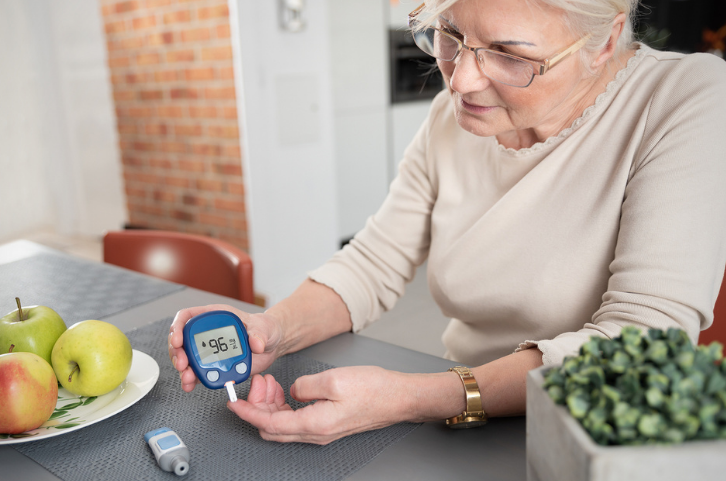When it comes to supporting someone with diabetes, caregivers may not be sure of the best ways to support someone with this disease. Fortunately there are plenty of resources out there that give insight on how to best help someone without overstepping or upsetting them. We’ve put together a list of the resources we found to be most insightful.
Assist with creating meal plans
Changing one’s diet can be tricky, especially when you are making it diabetes friendly. Help them organise their shopping list and meal plans, creating a meal plan rich in vegetables and protein and low in carbohydrates and sugars. A simple go-to is grilled chicken and oven roasted veggies – delicious!

Help with management of medication
When living with diabetes, it’s important to take your medication as needed. Seniors who also live with dementia/Alzheimer’s may need reminding to take their medication, so it is worth creating an easy to follow guide that you can print out for your loved one as well as keeping a copy yourself so that you can check in with them to see if they have remembered to take their medication.
Assist with organising appointments
It’s expected that people living with diabetes will need to see a health professional frequently to ensure they are still in decent health. You can aid a senior living with diabetes by keeping their appointments in mind and accompanying them or even providing transportation to and from.
Increase physical activity
Help get your loved ones out and about and getting some physical activity done! This doesn’t need to be a long gym session – going for a walk is a great and easy way to get someone out of the house and active. Try and squeeze in a walk daily, or longer walks every few days. The key is to be consistent!
Help inspect areas of the body if mobility is an issue
As we get older it’s more and more difficult to move around as we once would. As diabetes can get serious if an area of the body is infected, it’s important to help seniors with inspecting areas of their body that they themselves can’t look at due to eyesight or lack of flexibility and mobility.
Be positive and encouraging
Living with diabetes can seem scary from an outside view, so put yourself in your relative’s feet and imagine being the person living with it. It’s important to keep conversations positive and keep your loved one’s spirits high rather than focus on the frightening aspects of this disease.
Seek help if you are unable to do it all alone
The final piece of advice is that family can only do so much when it comes to illness and disease, and that’s okay. So it’s important to recognize when the worry is taking a toll on yourself or when you don’t have the time to look after your relative full time whilst looking after your own family or working etc.
Vital Home Health Services can provide that extra support, care and assistance and may be a welcomed respite for both you and your loved one living with diabetes.
If you have any questions regarding supporting a loved one with diabetes, please get in touch with Vital Home Health Services, as we have an in-house Diabetes Educator who can assist.








